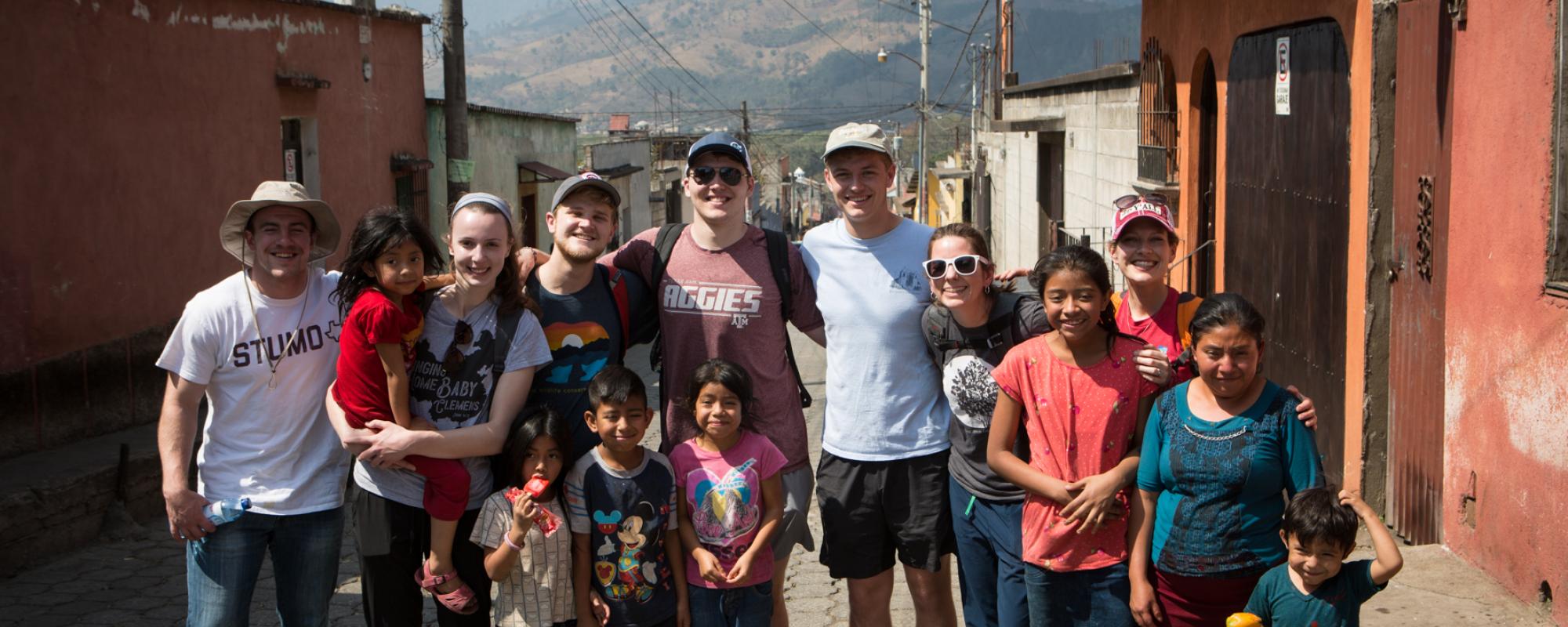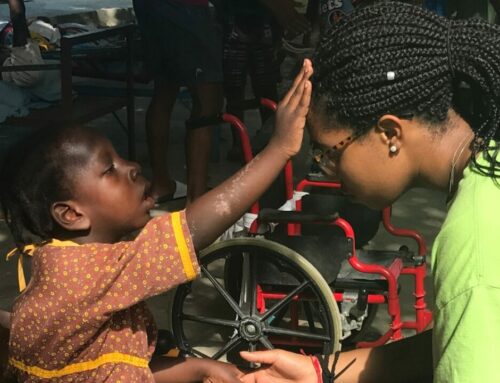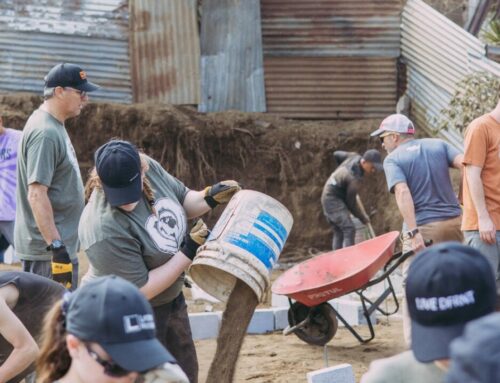Sometimes going on a mission trip may seem like a huge and daunting thing that is headed straight toward you. It can be scary, but it’s important to remember the purpose of your mission trip. As you prepare to go on your next mission trip, here are 3 tips to abide by:
1. Understanding the “Why” of Going on a Mission Trip
Understanding the “Why” of your mission trip may be as simple as digesting Acts 1:8 or the Great Commission of Jesus, but may go one step further. Asking questions like: What tangible results do I hope to see in my life and the lives of the team members? What steps can I take as a leader to facilitate the continued interest in serving God that happens after every intensive mission experience? And, how does a mission trip, youth or adult, not foster dependency in a foreign land? Once you find your “Why” move on to…
2. Researching the “What” With Three Things in Mind
The “What” really simply means “what will you choose to do”. What is the mission trip? As a leader of a team you’ll look hard at “What” your team will do and why it is needed. Maybe it is building the Mission Discovery orphanage in Port de Paix, Haiti or leading a children’s bible school in Mexico. Imagine Julian, from the Biggest Loser, yelling at you saying “What is the task ahead? Why is it important?” Answering these questions fully is the fuel for your recruiting effort.
As you’re considering the question of “What will we do?” the next questions that come hand-in-hand with that are “How will we do it?” and “how will we know we are successful?” The answer to these questions has to come from the team. They must agree how they will accomplish the mission once they know what the mission is. Every Mission Discovery team leader is taken through an exercise of creating a “Team Covenant.” The Team Covenant is like a contract. It contains the mission statement that a team will create specifically for the trip, how they will accomplish the mission statement, and the scriptural backup of each of these components. The Team Covenant can contain specifics like: “We will worship daily”, “We will seek to serve with the heart of Christ the nationals on the field and our team”, “We will meet daily to debrief the events of the day and ask each other how we saw God at work”, “We will ask God to show each of us during our short-term mission trip to help us understand what one thing will change in our lives because we came?”, etc.
3. Prepare your Team
One of Mission Discovery’s strengths over the past 18 years has been the dedication to preparing leaders to prepare their teams of our short term mission trip experiences. “Though the content has changed over the years the outline has mostly stayed the way I first experienced it with Tim Gibson, my boss in 1990,” says Maury Buchanan, Director of Mission Discovery short term missions. “One of the most powerful components of planning a mission trip for my own church recently was helping each team member know the ‘stories’ of each of their fellow teammates.” The group accomplished this very simply with 8 feet of wire. “We ask these adults to bend the wire into shapes that explained their life’s-journey with God. By the end of our meeting, the team had unfolded deep stories of the ups and downs of their walk with God.” It was only one step that would end with the ability of every team member having the ability to stand in any country in the world and in 5 minutes tell his or her story of how Christ had changed their lives. “I’m always excited about preparing a team. I believe the mission trip starts well before departure, and in a sense doesn’t end on the day they return home from the field.”
One component not often considered in a team short-term mission trip, is the reality that there will be problems. A short-term mission trip is no regular retreat. You are placing people out of their comfort zone, often among the poorest of the poor, sleeping in the heat, eating a different kind of meal, and working through cultural differences. Not to mention the possibility of speaking in front of people which ranks in the top 10 of greatest fears of people! Great books are available in understanding problem solving. Two quick sentences to expose your team to are: While there is sin in the world, lets consider that cultures are not right or wrong, just different. Secondly, when a problem arises always look for second, third, or forth “right” answer! Remember too, that problems are normal and biblical according to James 1.
Other components of the preparation process involve getting your team to experience one of the neatest forms of communication possible in a foreign field-non-verbal communication. That can be accomplished by having the team accomplish a puzzle. Then add an element to the exercise like asking the team to not speak and use only one hand. The wackier the better! To have your team think deeply about how they communicate non-verbally even relates to how the team dresses, etc. What are the other components of non-verbal communication? “Once, we had a counselor come and talk to our youth group about what she looks for non-verbally in a counseling session.”
Lastly, The Luna Game, is one of the greatest exercises in helping a team experience what it might be like to enter another culture. It is an experiential game where a team is divided into two groups and experience together another culture, the awkwardness of communicating with a language barrier and more. If you can’t find it online, Mission Discovery will send you a copy. It comes complete with two CD’s and printed handbook. (We ask that you consider a 10-dollar donation for shipping)
As You Prepare to go Back Home…
On the last night of your mission trip give the entire night to the team. Ask one simple question, “What are you taking home with you?” Step back and watch what happens. Resist the urge as the leader to be first, let the silence penetrate the room. Then you go last. Avoid the desire to fix or explain someone’s struggle. It is common for some team members to say, “I still don’t understand how God has given me so much, and they have so little.” Resist, resist, resist, the urge to preach. Simply say thank you. Remember James 1.
Lastly as a leader, you have so much on your plate in planning your mission trip. But if you are leading the trip, not using an agency like Mission Discovery, make sure that you do a set-up trip. In other words, spend the money to go to the field months before your team arrives to see it first hand. You’ll be better prepared to prepare your team. On that set-up trip you’ll want to look at the facility where teams will be sleeping, pass off dollars to your host missionary for supplies, research nearest hospitals for emergencies, have an evacuation plan in the event there is a need, discuss with the host missionary what his or her expectations are for your team. One of the most stressful parts of a mission trip for groups is, believe it or not, the arrival in an overseas airport. On your set up trip take notes about your entry, when you have cleared the last door, notice your surroundings, imagining your group passing through those doors and being shouted at by baggage handlers, taxi drivers, etc. and look for a place where the team can wait for their transport pick up with safety in mind.





